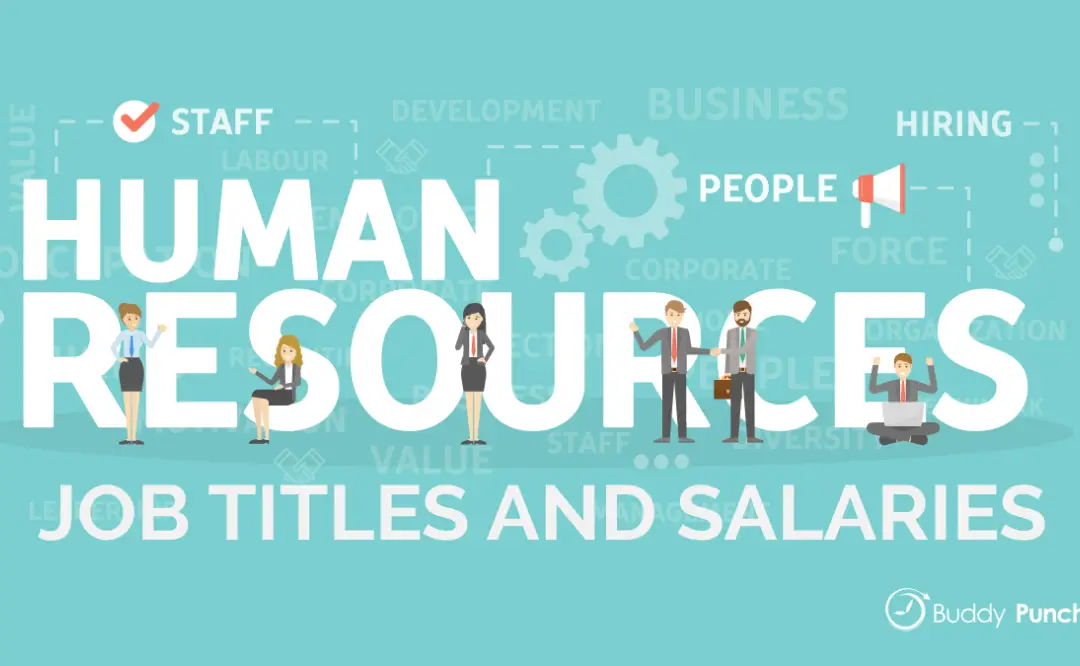Human Resources Job Titles and Salaries

For any organization to reach its optimal performance levels and potential, there must be a clear chain of command. There is an old adage saying, “Many hands make light work.” With everyone making their proper contribution, it is simple to attain set goals. Simplified, the chain of command determines who reports to who and what information gets reported to them.
The HR department is an integral part of the organizational structure of a business and plays a vital role in ensuring that the business’s objectives and policies are followed. The role of the Human Resources Department is to handle paperwork and other confidential information properly – whether from the business, customers, or employees. Employees must know who to contact regarding a specific question or who receives confidential information. For example, any information included in an email that is stored on a company’s server is considered public record if a court case should arise.
Each position in human resources handles slightly different tasks. It is crucial for employees to understand and respect this chain of command to avoid miscommunication in overlap and to avoid potentially overwhelming one specific manager. Below is a more detailed list of common issues that arise when the HR chain of command is not followed:
- One HR manager is unable to complete his role to the fullest because an ill-equipped employee attempted to resolve and handle an issue that was not their department.
. - Gaps are created as fellow employees are forced to cover responsibilities that are not theirs because an employee is attempting to handle an issue themselves that should have been handed off to the proper HR authority. This stress manifests as decreased workforce engagement and higher turnover rates among employees.
. - The disorganization caused by disregard for the HR chain of command can often cause cash flow issues or affect the ability of the company to provide competitive goods or services.
Human Resources Salaries
Human resources positions are broken up into the primary departments listed below:
- Executive
- Management
- Specialists
- Support
- Recruiting
Titles
HR salaries come in all compensation forms – hourly, monthly, and yearly. Below are short job descriptions of each tier, accompanied by the national average findings for the basic HR Job titles. Keep in mind that the title of the role plays a large part in the salary offered, and many positions have multiple titles. Also, salaries can vary largely based on region as well as the employer.
Executive
A HR Executive oversees the entire HR Department in an organization. They usually work their way from the bottom up, and bring a variety of skills and direct experience to the table to help make sure HR is functioning at full capability.
Chief Human Resources Officer (CHRO): $242.900
Vice President of Human Resources: $146,334
Chief Diversity Officer: $127,239
NOTE: Some organizations opt between either a VP of HR or a HR officer; others have both.
In addition to the above titles, there are some newer and unique takes on HR positions – such as Chief Happiness Officers being responsible for maintaining employee satisfaction, or Chief People Officer emerging as an alternative title for the CHRO.
Management
Human Resource Management differs from executives in that it’s more concerned with the day-to-day operations over a big picture view. Their focus is more on the employee experience – particularly employee training and ensuring high levels of employee engagement with your business.
Benefits Manager (or Benefits Administrator): $55,562
HR Director: $121,471
Employee Relations Manager: $71,553
HRIS Manager: $81,648
Recruiting Manager: $115,037
Retention Manager: $71,648
Staffing Manager: $55,485
Talent Manager: $81,392
Workforce Manager: $40,000
Specialists
Human Resources specialists focus on onboarding – locating which employees are the best fits for your organization and its needs. While the actual hiring process is still up to you, specialists help with sourcing and talent acquisition to ensure the pool of new hires you choose from are more likely to be good fits.
Compensation Analyst: $76,667
Credentialing Specialist: $35,560
Employee Relations Specialist: $24,897
HR Administrator: $53,240
HR Business Partner: $83,659
HR Generalist: $55,319
HRIS Analyst: $56,737
HR Technician: $51,887
HR Specialist: $60,350
Staffing Consultant: $54,289
Talent Buyer: $53,976
Union Organizer: $72,632
Workday Consultant: $45,200
Workforce Analyst: $70,660
Support
The worker bees of HR, the support HR team helps with administrative duties such as managing employee records, assisting with payroll processing, and assisting old and new employees alike with various tasks. They’re not just HR assistants, they help with administrative tasks around the company.
Credentialing Coordinator: $36,150
HR Coordinator: $52,642
Staffing Coordinator: $33,000
Recruiting
A little more hands on than the specialists, these HR professionals work hard to fill open positions with job postings and candidate testing.
Technical Recruiter: $57,070
Position Requirements
HR position requirements vary from business to business, based on size and need. Some smaller companies may only have one or a few HR staff members to handle all aspects. However, larger companies tend to have many tiers to their HR roles and career path. Some businesses may require a business degree; whereas, others may be satisfied with certain qualifications and experiences.
Depending on the position, some of the following qualifications and skills may be equally as important as a candidate’s education:
- Excellent interpersonal skills
- Familiarity with computers and common information systems
- Effective written and oral communication
- Comfortable with a wide variety of diverse people groups, cultural heritage, races, educational backgrounds, religions, ages, skill levels, and personalities
- Basic knowledge of finance and statistics
- Strong conflict resolution skills
- Team player
- Able to set and attain goals
- Ready to make impartial decisions and maintain confidentiality
- High-level of personal and professional integrity
Whether your HR department is multi-tiered or single-employee managed, it is vital that employees know who to see regarding every issue. This ensures that every department runs as smoothly as possible and creates the optimal work environment for your employees.